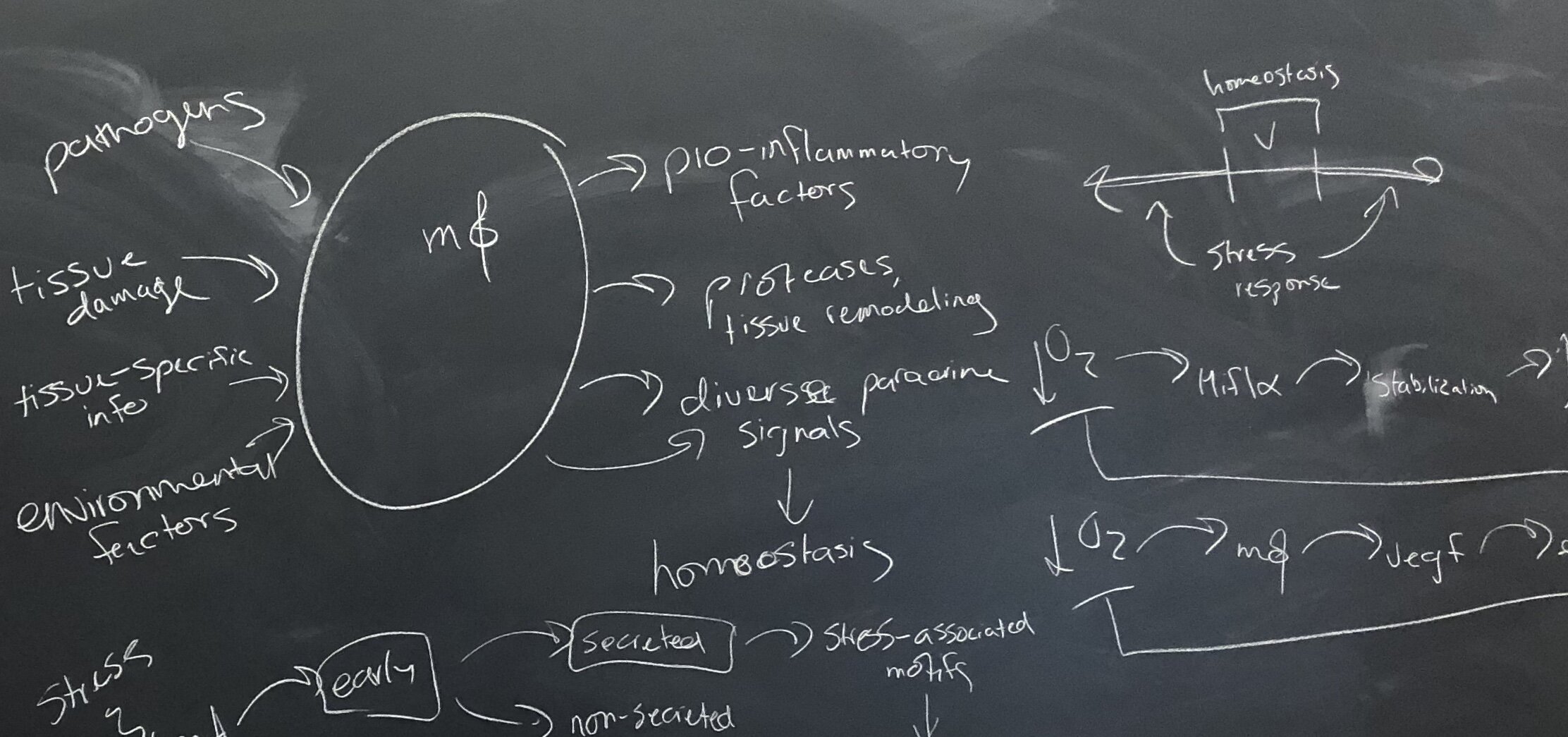
Research
Areas of interest
Immune cells respond to both subtle changes in the tissue environment and extreme perturbations that drive inflammation. We use mouse models of infection, tissue damage, and cancer to investigate this broad spectrum of responses, with a focus on the innate immune system.
Macrophage Biology
Macrophages are found in all mammalian tissues and have important roles in development, host defense, and tissue homeostasis. They perform general functions including tissue surveillance, activation and modulation of the immune response, and clearance of dead cells. In addition, macrophages have highly specialized roles depending on the tissue in which they reside. We hope to identify additional homeostatic functions of macrophages and determine how these features may be dysregulated or exploited during inflammatory diseases such as fibrosis and cancer.
Disease Tolerance
The primary function of the immune system in combating infection is to detect and eliminate pathogens. This defense strategy is known as resistance. However, immune cells can also participate in disease tolerance, which is an additional defense strategy that the host uses to limit damage caused by infection, both directly from the pathogen itself, and by the host immune response. We aim to uncover novel mechanisms by which immune cells contribute to disease tolerance.


